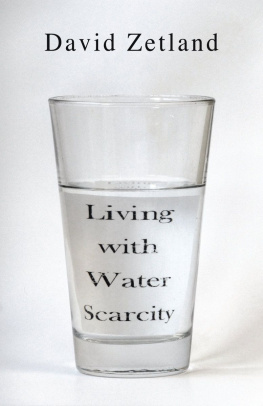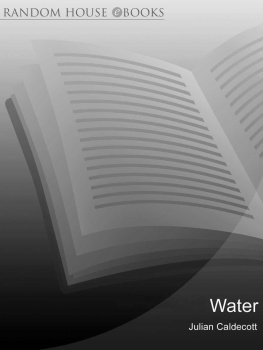Contents
Guide
ALSO BY FRED PEARCE
With Speed and Violence:
Why Scientists Fear Tipping Points in Climate Change
Confessions of an Eco-Sinner:
Tracking Down the Sources of My Stuff
The Coming PopulationCrash
and Our Planets Surprising Future
The Land Grabbers:
The New Fight over Who Owns the Earth
The New Wild:
Why Invasive Species Will Be Natures Salvation
Fallout:
Disasters, Lies, and the Legacy of the Nuclear Age

BEACON PRESS
Boston, Massachusetts
www.beacon.org
Beacon Press books
are published under the auspices of
the Unitarian Universalist Association of Congregations.
2018 by Fred Pearce
All rights reserved
Text design and composition by Kim Arney
Maps by Hardlines Studio, UK
Cover design by Bob Kosturko
Cover photo credit iStock Photo
Library of Congress CIP Data is available.
ISBN 978-0-8070-5489-5 (pbk.) | 978-0-8070-5490-1 (ebook)
For Joe,
another river who died before his time
ABBREVIATIONS
| CGIAR | Consultative Group on International Agricultural Research |
| EEA | European Environment Agency |
| FAO | UN Food and Agriculture Organization |
| GERD | Grand Ethiopian Renaissance Dam |
| GIZ | Deutsche Gesellschaft fr Internationale Zusammenarbeit (German government development agency) |
| IIASA | International Institute for Applied Systems Analysis |
| IIED | International Institute for Environment and Development |
| IPCC | Intergovernmental Panel on Climate Change |
| IS | Islamic State, also known as ISIS, ISIL, or Daesh |
| IUCN | International Union for Conservation of Nature |
| IWMI | International Water Management Institute |
| MDGs | Millennium Development Goals |
| OMVS | Organisation pour la Mise en Valeur du Fleuve Senegal (Senegal River Basin Development Organization) |
| TNC | The Nature Conservancy |
| UNEP | United Nations Environment Programme |
| UNESCO | United Nations Educational, Scientific, and Cultural Organization |
| UNICEF | United Nations Childrens Fund |
| WHO | World Health Organization |
| WWF | World Wildlife Fund |
INTRODUCTION
The Power of a River
IT WOULD BE wrong to say that I have been obsessed with rivers all my life. But they have a hold on me. I was brought up in a village in southeastern England where two small rivers begin their journey to the sea. The Stour flows east through the cathedral city of Canterbury, takes in some extra water bubbling up from the East Kent coal mines, and finishes in a marshy mess called Pegwell Bay, near the ancient Cinque Port of Sandwich. The Len flows west to the Medway and the Thames Estuary. It once powered eighteen mills on its ten-mile journey, filled the moat of a twelfth-century castle where Henry VIII often stayed with his Spanish first wife, Catherine of Aragon, and formed a lake in a park where I played school rugby and cricket. Then one day it ooded and I couldnt get to school. That struck me: the power of a river unleashed.
Rivers often dene our world. Is there a better way of seeing London than taking a boat down the Thames to Greenwich? Is there a better book about America than the one narrating Huckleberry Finns journey on the Mississippi? Some of the greatest human adventures have been along rivers: up the Orinoco to nd El Dorado, or the search for the source of the Nile. Millions of Indians keep bottles of holy Ganges water in their homes. We romance on the Blue Danube and the Seine, and ght over the Jordan and the rivers of Babylon. The Yellow River is Chinas joy and sorrow.
Yet something disturbing has been happening to our rivers. I have only slowly become aware of it: just a news story here and there. But the maps in my atlas no longer seem to accord with reality. The old geography lessons about how rivers emerge from mountains, gather water from tributaries, meander down floodplains, and nally disgorge their bloated ows into the oceans are now often ction. Many rivers are dying as they go on, not growing. Inland seas, lakes, and wetlands that rely on them are disappearing too.
Because I am a journalist, I assembled a small le of press clippings. The Nile in Egypt, the Yellow River in China, the Indus in Pakistan, the Colorado and Rio Grande in the United Statesall were reported to be trickling into the sand, sometimes hundreds of miles from the sea. Individually, these were interesting stories. Taken together, they seemed to be something more. Some kind of cataclysm was striking the worlds rivers. So began the idea for this book.
I soon learned more. Israel is draining the Jordan River into a giant pipe before it reaches the country that bears its name. There have been droughts on the Ganges, because India has sucked up the holy rivers entire dry-season ow. The ancient river Oxus, once the Nile of Central Asia, has been diverted into the desert, leaving the Aral Sea to dry out. This was a real shocker; the shoreline still shown on many maps of what was once the worlds fourth-largest inland sea is hundreds of miles distant from where the shore is today. Back home, even the chalk streams of my childhood are disappearing.
Wells have been drying up too. More than half a century of pumping water from beneath the Great Plains of the United States has removed underground water that it will take the rains two thousand years to replace. In India, farmers whose fathers lifted water from open wells with a bucket, now sink boreholes more than half a mile into the rocksand still they often nd no water. In less than half a century, Saudi Arabia has almost pumped dry one of the three largest underground water reserves on earth.
My book is a journey on the worlds rivers: a journey of discovery to nd out why we face this crisis, what happens when great rivers die, where we could be headedand how we can restore the rivers health and our hydrological future. Although it is mainly about rivers, it is also about how we use water: about the staggering amount that it takes to feed and clothe us, and about how the world trade in food, cotton, and much more is also a trade in virtual waterthe water it takes to grow those crops. That implicates Western consumers directly in the emptying of many of the worlds great rivers. Water is a local resource, but the huge virtual-water trade has globalized the impact of emptying rivers.
As I took this journey, I met many water custodians. I shivered with men in overcoats who huddled in drafty offices trying to keep the Ruritanian badlands of Karakalpakstan from turning to desert. I marched in Japan with a man who once ran the worlds largest dam-building organization but now campaigns to tear down dams. I met Indian rainwater harvesters and the last person alive with the secrets of divining water from under the hills of Cyprus. I drank toasts with Chinese bureaucrats who told me late in the evening how droughts on the Yellow River could one day trigger a ood disaster on a par with the one eighty years ago that they try not to talk aboutit was man-made and killed almost a million people.

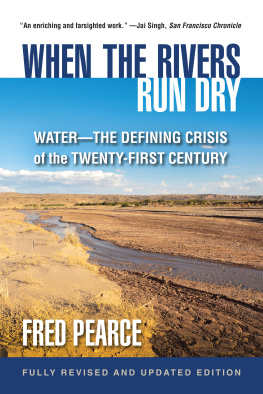
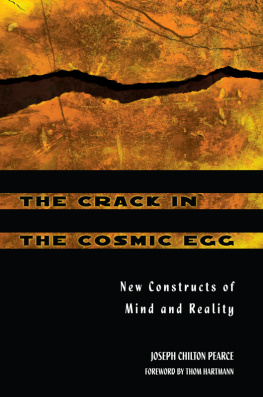
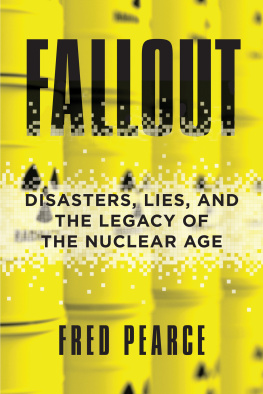
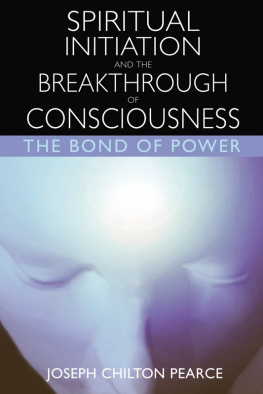
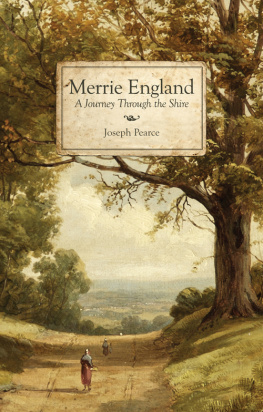
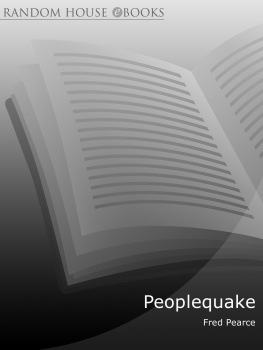

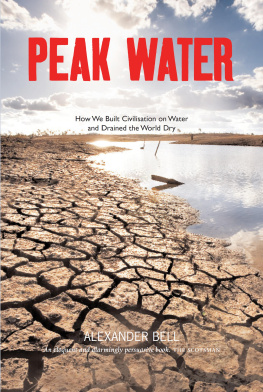
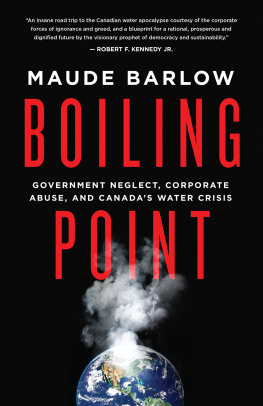
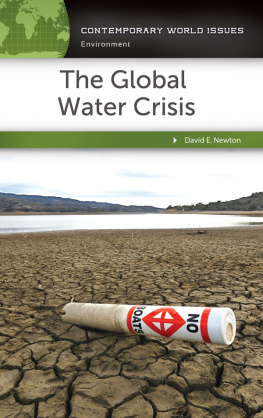
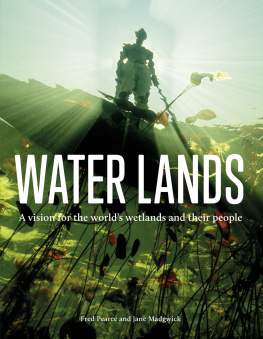
![David E Newton] - The global water crisis : a reference handbook](/uploads/posts/book/104432/thumbs/david-e-newton-the-global-water-crisis-a.jpg)
